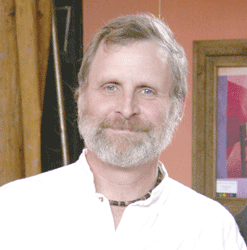UNCOMMON COMMON SENSE
By Bill Frayer
Empowering Your Inner Introvert
 I was surprised when in graduate school I took the Meyers-Briggs assessment and discovered, among other things, that I was an introvert. In addition to being surprised, I think I was also a bit embarrassed. I was a teacher and had expected that good teachers would naturally be extroverts. It was confusing to me to be labeled an introvert.
I was surprised when in graduate school I took the Meyers-Briggs assessment and discovered, among other things, that I was an introvert. In addition to being surprised, I think I was also a bit embarrassed. I was a teacher and had expected that good teachers would naturally be extroverts. It was confusing to me to be labeled an introvert.
The more I thought about it, the more obvious it was, however. Being an introvert is not the same as being shy. A shy person is afraid of being judged in social situations. Introverts simply do not feel as stimulated by social interaction. They prefer solitude or the company of a small group of friends to a large party of people they do not know well. As a teacher, much of my work was done alone in preparing for my classes. As a writer, all of my work is done alone. I like being with people, but I also value my contemplative time.
Susan Cain, who was recently featured in a TED presentation at LCS, wrote the best-selling book, Quiet: The Power of Introverts. She claims that our society, especially since the 20th century, has been biased in favor of extroverts. In our classrooms, we insist students arrange themselves in circles for group discussions and group projects. In the workplace, considerably more emphasis is placed on collaboration and group problem-solving. Cain claims that, although there is nothing wrong with collaborating, we have undervalued those who prefer working alone.
If one third to one half of people are introverts, as she claims, then we need to respect the fact that many don’t work as well in environments that insist on extroversion. The research demonstrates that often the best ideas are generated by those who have time to think and process their thoughts alone. Charles Darwin and Albert Einstein are good examples of introverts whose quiet thinking time led to revolutionary ideas.
As a society, we have come to favor extroverts because we value action over contemplation. Maybe it is our distrust of intellectuals. Maybe it’s our irrational fascination of celebrities with outsized personalities. Whatever the reason, we have created a world where we value extroverts, even if they have little to contribute other than their appealing, extroverted personalities. Some research suggests that introverted supervisors produce better results and more innovation. They tend to allow people to work with more freedom than extroverts who have a tendency to impose their ideas and values on the group. Many of the best ideas are, indeed, produced by introverts who, working alone, can backup their ideas with clear thinking.
When I think back to my teaching days, I can see how I favored extroverts. When I asked a question in class, the extroverts would raise their hands even if they only had a preliminary answer. The introverts would still be processing the question while the extroverts were speaking. When I read over the work the students did at home, on their own, it was often the quiet introverts in class who had the most thorough, well-reasoned answers.
Of course, as Jung pointed out, we are all on an introvert-extrovert continuum. No one is entirely extroverted or introverted. But we probably do need to appreciate introversion more. And those of us who are introverts don’t need to feel less than adequate. Abraham Lincoln was another famous introvert, and we’ve all heard his famous quote: “Better to remain silent and be thought a fool than to speak out and remove all doubt!”









